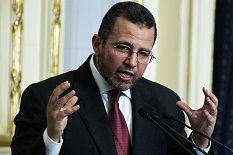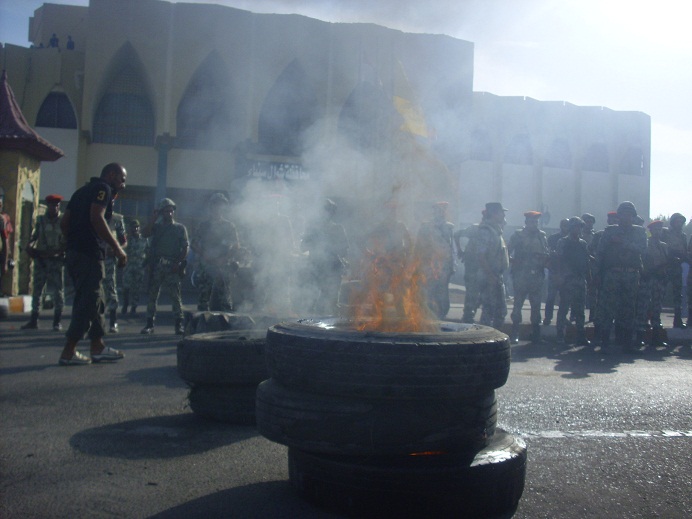CAIRO: An outspoken critic of the ousted regime, Saad Eddin Ibrahim, head of the Ibn Khaldun Center for Development Studies in Cairo, draws parallels between Hosni Mubarak’s reign and that of the military.
In an interview with Bitterlemons, Ibrahim discusses the Muslim Brotherhood, his time in prison and what he refers to as the “continuity” of the Mubarak regime.
BI: You spent three years in prison under the Mubarak regime. How would you compare the issue of incarceration and scope of arrest and imprisonment in Egypt for alleged offenses against the state under the Mubarak regime and the current, military regime?
Ibrahim: So far there is a great deal of continuity.
Does this apply to the current trial of several dozen Americans and other foreigners and Egyptians for so-called illegal non-governmental organizations activity? Is this the same accusation you were convicted of?
This is the same accusation. This is [the] continuity [I’m referring to]. [The regime] wants to distract public opinion from its failures. The military officers do the same thing now as the Mubarak regime then.
Can you assess whether this will be true once there are a new parliament, president and constitution?
So far, [the Muslim Brotherhood] keep saying they will respect the peace treaty with Israel and in their foreign policy they want to reach out and normalize relations with Iran, as with the West.
And on domestic policy?
On domestic policy and the rule of law, so far they say the same thing, that they will respect all human rights including women’s rights, and not impose any restrictions on lifestyle. They are taking their cue from Turkey, which is permissive of all lifestyles, not from Saudi Arabia or Afghanistan.
But the concern of Egyptians now is not with lifestyle or the Supreme Council of the Armed Forces or Muslim Brotherhood, but with [personal] security. There have been nasty incidents on the highways and elsewhere.
Does the public feel that the need for security justifies violating human rights?
The public hasn’t reached the point where this justifies violation of human rights. But the police lost control after the revolution. They want the public to let them have the same kind of freewheeling right to conduct security as before the revolution. The police say the current situation is undermining their authority and ability to control.
Returning to issues of imprisonment, is it true that the sons of deposed president Hosni Mubarak now occupy your old prison cell? Do you see any symbolism here?
Yes, the same cell bloc as I was in. It is in a corner, where it is more convenient to put the Mubarak sons to keep them safe. It’s more convenient for security. –This interview was first published on March 1 by bitterlemons-international.org



